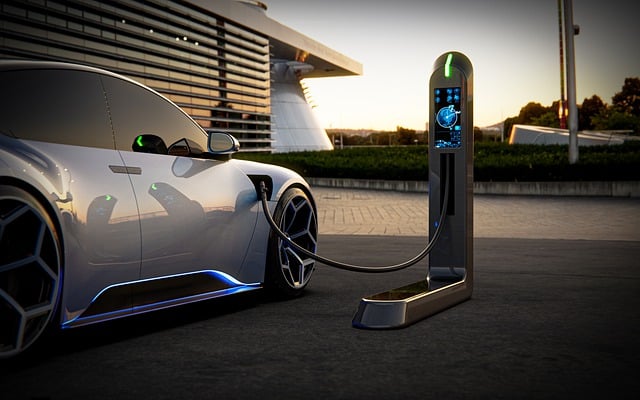
What with the ULEZ wars and Rishi Sunak’s amendments to Net Zero policy, electric cars (EVs) are back in the spotlight. And that got us thinking that we hadn’t looked at the EV issue since… well, forever. In fact, the last time we dived into anything to do with EVs, we were still spending our long journeys playing Spot the Tesla.
So, let’s rectify that in this two-parter, where we’ll be looking at the current (current, geddit?) state of play with EV adoption, as well as their headwinds and tailwinds they’re experiencing in the UK.
EVs – the great big picture
Pub quiz question number 1: at the moment, what percentage of cars sold globally are electric?
Answer: according to EV gurus Cleantechnica, in June 2023*, one in six (15%) of all cars sold globally came fitted with a plug. Out of those, just over two-thirds were battery only, the rest were plug-in hybrids. If you add in plugless hybrids, the overall figure is around 25% of all cars sold had full or partial electric power.
As you might expect, the figure varies wildly from country to country, depending on availability, government policies and so on. Norway has by far the highest rate of EV adoption – about 88% of new car sales are electric – whereas the USA only managed 8.7%.
As the world’s biggest car market, what happens in China is especially important. EV sales there are greater than the rest of the world combined: in 2022, the country sold 4.4 million electric cars, compared to 3 million for everywhere else.
How about in Blighty? Figures show that the UK is sitting right on the global average, with just over one in six car sales (16.6%) equipped with some form of plug-in power. We’re in the middle for Europe, too. This graph (we’re not going to steal it!) puts us midway in a group of European countries, with Sweden at the high end (37.3%) and Latvia trailing the pack (9.1%).
*the latest figures we have available at the time of writing
So these electric car things are catching on, then?
You could say that. Here are the increases in the three biggest car markets:
| Market | BEV + PHEV sales
First half of 2022 (millions) |
BEV + PHEV sales
First half of 2022(millions) |
Percentage increase |
| Europe | 1.16 | 1.48 | + 28% |
| China | 2.45 | 3.37 | + 37% |
| North America | 0.49 | 0.74 | + 50% |
Source of data: EV-Volumes – The Electric Vehicle World Sales Database
However, adoption in some markets is increasing way faster than this, with Australia notching up a 248% increase and Thailand up by 370% – although that’s because they’re starting from a pretty low base.
As for the UK, Inside EVs tells us that for August 2023:
- Sales of battery electric vehicles were up 72%, year on year
- Sales of PHEVs were up 70%, year on year.
(As an aside, the same article shows diesel vehicles continuing their death spiral, with new registrations down a whopping 17.5%).
Auto Express reports that much of the UK’s EV growth is down to fleet owners, who like the lower maintenance costs for their fleets.
In summary, you wouldn’t want to bet against EVs… although that’s exactly what the world’s second largest car manufacturer, Toyota, has been doing. For years, former head honcho Akio Toyoda has been gambling that EVs are just a fad. Does he know something everyone else doesn’t?
Once an EV driver, always an EV driver?
One clue at what the future holds for electric cars is to look at how many EV adopters want to swap back to petrol or diesel. After all, if enough people discover that running an EV just doesn’t work for them, we won’t see those sales whooshing up for much longer.
Investigating this gets complicated, because you soon run into media bias. According to The Sun, for example, EV owners are returning to ICE cars in droves, mainly because of poor infrastructure. Open up the pro-EV Guardian, and you’ll get a very different picture.
So who’s right?
In a 2021 What Car? survey reported by the RAC, 90% of UK owners want to stick with EVs. Around the same time, a ZapMap survey found even higher satisfaction ratings, with only 1% prepared to definitely abandon their EVs.
That looks conclusive, but it’s quite possible that loyalty might erode rapidly. There are two main reasons. Firstly, it looks like the growth in EV sales is outstripping the growth in electric infrastructure, and until the latter catches up, charging may become more of a pain in certain UK areas. Secondly, the recently cancelled 2030 ban on new ICE vehicles could undermine growth. In the What Car? survey, about one-third of those surveyed switched because of the impending ban.
But more on that next time, as we look deeper into the pluses and minuses of owning an EV in 2023.
The WVS blog covers a wide range of automotive topics, from the contentious to the light-hearted. We are an independent garage specialising in the VW group marques, including Audi, Volkswagen, Skoda and SEAT. WVS provides services, repairs and MOTs, delivering a main dealer level of care at affordable prices. To book your vehicle in, or for any enquiries, get in touch.
